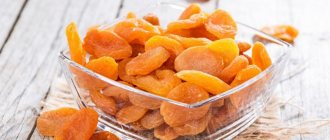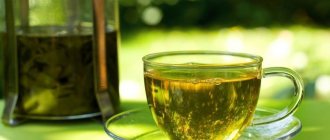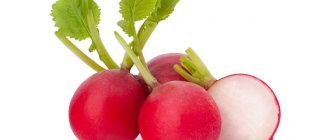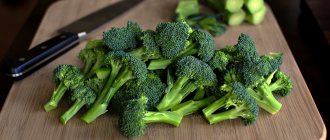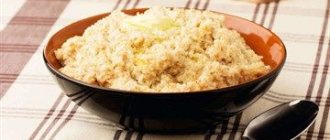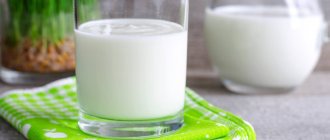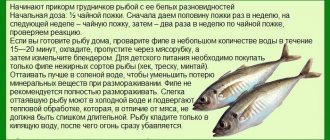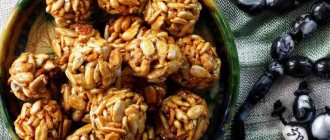Is it possible to eat fruit while breastfeeding?
A nursing mother can introduce plums into her diet from 3–4 months after the birth of her baby. It can be either raw or dried fruit, or in the form of jam or compote. But don’t get carried away: plums in large quantities can cause diarrhea. The norm is 3-4 pieces per day or a glass of compote.
A mother should try to introduce a new product into her diet gradually to make sure that it does not cause an allergy in the child.
What are the advantages of dried apples over fresh ones for nursing mothers? Read the link.
Dosage and amount of plums during breastfeeding
If a mother on breastfeeding does not have an allergy, then you can start introducing plums into your diet when the baby is 3 months old. You need to start with a minimal amount, preferably in the first half of the day.
Half a plum will be enough to monitor the condition of the baby. If within 24 hours the baby does not develop an allergic reaction, does not develop diarrhea, or does not suffer from colic, then increase the portion of plums every day, but no more than three pieces of fruit per day. If the baby’s health has worsened, then you need to stop eating plums; it is better to postpone this process for 2-3 months, then try again.
You can try drinking compote from plums, it is more gentle for babies, since the plums undergo heat treatment.
Is it possible to eat fruits in the first month of breastfeeding of a newborn?
Experts do not recommend trying plums during breastfeeding in 1 and 2 months after the birth of the child.
The child’s digestive tract is just getting used to eating milk and is populated with the necessary beneficial microorganisms. And many fruits, including plums, can cause colic in a baby. a nursing mother to limit herself to baked apples or bananas (including dried ones) during this time. Even in compote as part of a mixture, plums can have a negative effect. Therefore, it is better to wait until the child’s digestive system is functioning properly - at 3-4 months of his life.
Plum jam
During breastfeeding, you can eat almost any jam, including plum jam. Just be careful, as sugar gives the baby gas. In order to preserve maximum beneficial properties, it must be prepared as follows:
- 1 kg plums;
- 600-800 gr. Sahara.
Peel the plums and boil the resulting puree (without adding water) in a stainless container for 15 minutes. Remove from heat and add sugar. Stir until the sugar is completely dissolved, do not cook any more, but place in sterilized jars and seal.
How should a nursing mother of a 3-4 month old baby consume fresh fruit?
When the baby’s body has already become a little stronger, has adapted to the surrounding conditions, and all its systems have established their functioning, he is ready to accept new foods through his mother’s breast milk. Therefore, even if a child gets a negative reaction to plums (skin rashes, red crusts, indigestion, etc.), the body will be ready to quickly cope with it.
Mom should not rush when introducing a new product: it is best to start with 1 glass of plum compote per day. In this form, this fruit will be absorbed most carefully. As for fresh fruits, even if the baby did not react to the plum, the mother should not get carried away with it. You need to limit yourself to 2-4 fruits per day.
Doctor Komarovsky's opinion
The children's doctor Komarovsky, beloved by all of us, says that everything you ate before and during pregnancy, eat for your health! And what you haven’t tried before, you don’t need to start during breastfeeding. If a plum causes anxiety in a child, then it should not be excluded from the diet, but reduced to a minimum. And continue to try to introduce the minimum amount per day.
May breastfeeding bring you only joy. Don’t perform heroic eating feats, listen to your body and your child’s well-being.
Delicious recipe! How to cook Khinkali store bought
Compote
As part of a compote, plums will not be able to affect mother and child as much as they do fresh, so they will only benefit everyone. All mom needs to do is prepare this drink correctly. For plum compote you will need:
- 500 grams of plums;
- half a liter of clean water;
- 1-2 tablespoons sugar.
Preparation:
- Wash the fruits thoroughly, cut them into pieces and remove all seeds.
- Let the fruits boil in water for a couple of minutes and then add sugar to it.
- Reduce heat and simmer the compote, covered, for 5–7 minutes.
- Cool the finished drink.
If the baby is not prone to allergic reactions, then you can add spices to the finished compote: a little ground cinnamon or a little lemon zest to taste.
If you drink one glass a day, this amount of drink will last for 2-3 days. Of course, during the cooking process, some of the beneficial vitamins and microelements will be destroyed, but the secret is that you need to cook the fruit for no longer than 7 minutes. Then some of the benefits from the plums will remain and be passed on to the baby.
Read our next article on how to cook delicious and healthy apple compote.
Is it possible for a nursing mother to drink plum compote and what are its benefits?
We have all become accustomed to compote since early childhood - this drink is considered extremely healthy, and therefore it is often included in the menu of young children.
Its main feature is that it is made from dried or fresh fruits, which are not boiled for very long - thanks to this, the decoction turns out rich and at the same time contains the maximum amount of useful substances from the fruits.
Since pediatricians say that a nursing mother’s diet should consist almost entirely of healthy and wholesome foods, the inclusion of such a wonderful drink is quite logical. However, when it comes to plums, many mothers are confused by their laxative properties.
Yes, of course, in large quantities and, especially when fresh, this garden berry can cause serious stomach upset, but if you follow the measure and administer the decoction from it carefully, a negative reaction can be avoided. That is why pediatricians do not prohibit the use of plum compote, but recommend drinking it carefully and in small quantities.
Beneficial properties of plum drink
If you follow all the rules, then this aromatic drink will bring a lot of benefits to both the mother herself and her baby.
- Plums in their pure form are a low-calorie product, and therefore are recommended for those nursing mothers who want to lose weight gained during pregnancy. Of course, adding sugar or honey to the compote slightly increases the calorie content of the drink, but it still remains an excellent alternative to many sweet drinks.
- After childbirth, a woman’s body experiences a special need for vitamins and microelements, and therefore the inclusion of foods rich in nutrients in the menu is simply necessary. Plum compote partially satisfies this need and promotes more active recovery.
- Plums contain a significant amount of potassium. This microelement is involved in the processes of regulating water-salt balance in the body and helps the body remove excess water. Since many women in labor suffer from edema, plum compote can be an excellent natural remedy against it.
Thanks to the removal of excess fluid from the body, blood pressure decreases, due to which the load on the cardiovascular system is significantly reduced and it functions better.
- Plums are an excellent source of plant-based antioxidants. These substances have a beneficial effect on the condition of cells in the body, help them renew themselves and improve the processes taking place inside them. In addition, they remove toxic substances from the body and neutralize free radicals, which are known to cause cancer.
- Plum compote can be a safe and, most importantly, a natural laxative. The fact is that plums contain substances that have a laxative effect. For this reason, doctors recommend drinking this compote to nursing women who suffer from constipation and similar digestive problems.
- Plum compote can help develop good eyesight in a baby, since such berries are a rich source of vitamin A. This compound not only has a positive effect on visual acuity, but also prevents the development of diseases that affect the eyeball.
- This drink will be useful for those mothers who are predisposed to a disease such as diabetes. A number of components in plums affect blood sugar levels and normalize them. This applies to a drink brewed without added sugar.
The rich vitamin content of plums makes them an excellent tool for strengthening bones. Studies have shown that regular consumption of plums in reasonable quantities by breastfeeding mothers improved the baby's bone health and increased growth.
Benefits of the product and its effect on lactation
A nursing mother must know what benefits she can get from the product in order to pass it on to her baby. Plums are very healthy fruits . They contain many vitamins and microelements. For example:
- vitamins A, B, C;
- nicotinic acid;
- phosphorus;
- iron;
- magnesium;
- potassium;
- calcium.
This means that the plum is capable of:
- establish regular bowel function and help forget about constipation;
- raise hemoglobin levels and relieve anemia;
- have a diuretic effect, cleanse the lymphatic system, reduce swelling;
- strengthen blood vessels and lower blood pressure;
- improve the general condition of the face and skin;
- influence the rate of energy metabolism;
- have a slight sedative effect.
Is it possible to eat pears, apricots or kiwis already in the first month of breastfeeding? Read the linked articles.
Benefits of dried fruit compote
During breastfeeding, it is important to properly formulate a diet, because all substances pass through milk to the baby. Compotes or teas with the addition of dried fruits are useful at any time, especially in winter.
The drink improves lactation, normalizes digestion, and has a beneficial effect on the condition of the skin and hair. Dishes made from a mixture of fruits cope with constipation in the mother, and are easier for the baby to digest than fresh fruits. Vitamins and minerals improve the functioning of nerve cells, iron, potassium improve immunity.
A positive characteristic is the preservation of the necessary beneficial elements during drying of the fruit. The compote mixture includes: dates, raisins, dried apricots, apples, pears, prunes.
The edible fruits of the date tree are very nutritious and tasty, as well as easily digestible. The production of the lactation hormone, oxytocin, increases. Dates strengthen the body's defenses, improve brain function, improve memory, and relieve fatigue. The maximum daily dose of fruit for a nursing mother is 5 pieces. There are restrictions for use (stomach ulcers, diabetes, allergies).
The fruits should be shiny, smooth in appearance, wrinkling is allowed. It is forbidden to buy and use dates with traces of mold or sugar crystals on the skin. A large amount of sugar has a bad effect on the condition of tooth enamel, so after eating the fruit in its pure form, it is recommended to rinse your mouth with water.
Delicious recipe! Garlic Soup Dumplings Recipe
Raisins are dried grape fruits. The product contains vitamins and minerals. The properties of raisins relieve fatigue, give energy, normalize metabolic processes in the body, strengthen the cardiovascular system, normalize sleep, and improve immunity.
Before use, dried grapes should be poured with boiling water and left for a few minutes. Raisins are harder for the digestive system, so they are allowed to be consumed no earlier than two months.
Another component of the compote mixture is prunes. These are dried plums and are a natural laxative that helps with constipation. Prunes contain a large amount of minerals, coarse fiber, vitamins, are a diuretic and antibacterial dried fruit, and have hypotensive properties.
Due to the strong cleansing effect due to fiber, prunes can relax the baby's digestive system. It is better to introduce dried fruit into the diet of a nursing mother no earlier than three months - 2-3 pieces. The berries should be dark and wrinkled. Fruits that are too coarse, hard or soft have been improperly processed, stored or dried.
Dried apricots are called dried apricots and contain potassium, magnesium, and phosphorus. This is an effective product for strengthening the body's defenses. The orange fruit can become a strong allergen for babies, so the mother needs to be careful when introducing dried apricots.
After the birth of a child, dried fruit is consumed in the second month, no more than 100 g. If consumed excessively, reactions of the child’s body are possible. It is important to choose high-quality fruits - not deformed, without rotten lesions, spots, but inconspicuous in appearance. Bright, juicy berries are treated with special chemicals.
Apples are allowed during lactation from the first weeks. Not only the internal components, the pulp, are useful; the amount of vitamins is contained in the peel of the fruit.
Properties of apples:
- Normalization of digestion.
- Prevention of stool retention.
- Reducing the risk of cancer.
- Normalization of cholesterol.
Thanks to fiber, digestion and hematopoiesis are normalized. Dried berries (cherries, plums, strawberries) are used to prepare compote. Cherry compote rarely causes allergies and saturates the body with ascorbic acid.
When breastfeeding, a young mother should choose safe and maximally healthy foods.
Can it cause harm?
By themselves, these fruits in small quantities will not cause harm to mother and baby. But you need to be careful and know what the consequences are if you violate the recommended amount of fruit per day.
If a woman ate plums quite regularly during pregnancy, then the baby is less likely to have an allergic reaction to this product.
Dangers for the mother
A nursing mother should remember that the amount of fluid she drinks affects the production of breast milk. If you drink more plum compote than recommended, you may get more milk. The child will not be able to eat everything, this is fraught with the appearance of lactostasis.
In addition, there are diseases in which it is better for mothers to stop eating plums. These include:
- diabetes mellitus (fruits contain quite a large amount of sugars);
- gastritis (plum increases the concentration of gastric juice);
- allergic reactions (individual reaction of the body);
- rheumatism (the fruit has a laxative effect and removes a lot of fluid from the body);
- urolithiasis (a lot of fluid leaves the body after eating plums).
Dangers for the baby
Like any other product that a mother consumes, plum can negatively affect the child. The baby may have:
- stomach upset;
- allergic reactions (rashes and redness on the skin, formation of crusts, reaction from the gastrointestinal tract, etc.);
- colic, painful for the child.
Effect on the body of mother and baby
The rich biochemical composition and pleasant taste of the fruit explain the popularity of the fruit. But whether it is possible to eat plums while breastfeeding is sometimes decided by a specialist, since they have an effect not only on the mother’s body, but also on the baby. For this reason, it is recommended to clarify this issue with your pediatrician if there are any problems with the baby’s health.
With breastfeeding, all food eaten by the mother affects the chemical composition of breast milk. Plum is a strong laxative, which in some cases can harm the baby. When consumed by a mother immediately after the birth of a child, the product can cause severe diarrhea and colic in the newborn.
Benefit
During breastfeeding, it is allowed to eat plums in small quantities. The beneficial effect they have in some cases makes their use during lactation mandatory. It is not advisable for nursing mothers to take medications, so it is often recommended to use certain products to prevent and alleviate unpleasant symptoms.
Beneficial properties of plums during breastfeeding:
- improving memory, concentration, normalizing sleep, resisting stress;
- protection of blood vessels, cleansing of cholesterol plaques;
- strengthening the immune system;
- removal of excess fluid from the body, anti-edematous effect due to its diuretic properties;
- prevention of arthritis, heart attack, asthma, cancer;
- laxative effect for constipation in baby or mother;
- treatment of iron deficiency anemia;
- increased appetite, decreased gastric acidity;
- prolongation of youth and longevity.
In what cases are they harmful?
When deciding whether a nursing mother can eat plums, it is advisable to consult a pediatrician. Sometimes, at a given moment, a fruit can harm a baby. For example, in the first month, the newborn’s digestive system is just adapting to a new type of diet. There are few enzymes and beneficial microflora, so diarrhea, colic, and bloating may occur. During this period, eating plums will only aggravate the unpleasant symptoms. It can also cause allergies, which could be avoided by introducing the fruits a little later.
On a note! In case of an allergic reaction, you should beware of cross allergens - apple, peach, nectarine, cherry, apricot, birch pollen.
Harm from plums during breastfeeding mainly manifests itself only with excessive consumption. Possible side effects are diarrhea, heartburn, nausea. In this case, the baby will also experience digestive disorders. It is necessary to pay attention to the quality of the fruit. Rotten and unripe specimens are prohibited from being consumed during breastfeeding.
Dried prunes contain acrylamide, which is a carcinogen and neurotoxin. To harm the body, you should eat a lot of this product, but a baby needs a much smaller amount. For this reason, dried fruit is introduced later than fresh plum. The danger is posed by foreign goods treated with chemicals to increase shelf life and maintain organoleptic properties at the proper level.
Eating plums can cause heartburn and diarrhea
Contraindications
During breastfeeding, plums should not be consumed:
- in the first month after childbirth without a doctor’s indication;
- for diabetes mellitus;
- severe obesity;
- gastritis in acute form;
- inflammation of joints and muscles (rheumatism, gout);
- cholelithiasis;
- individual intolerance;
- allergic reaction.
Rules for introducing into the diet
To introduce plums into your diet, mother should slowly follow the following algorithm:
- Eat a small piece of this fruit in the morning.
- Over the next 2 days, monitor your baby to see if he has any reaction.
- If there are no negative changes, then you can safely increase the dose of the product.
- Plum has a laxative effect, so you should not eat more than 2-3 fruits a day, otherwise your child will have an upset stomach. You can replace them with one glass of plum compote.
If the baby has some kind of allergic reaction to the plums eaten by the mother, then the fruit should not be eaten for several months. Only after this time can the attempt be repeated.
How to properly introduce plum compote into the diet of a nursing mother
Now let's talk about how nursing mothers should introduce this drink into their menu in order to maximally protect their baby and themselves from negative consequences.
First of all, it should be noted that pediatricians recommend not to rush with this type of compote - yes, apple, pear and other decoctions are allowed in the first month after birth, but plum drink, due to its laxative properties, is better left for a later date.
So, the first attempt to introduce it into your diet can be made when the baby turns three months old. By this age, the baby’s digestive system should already be sufficiently strong and will most likely react normally to a new drink on the mother’s menu.
If there are no allergies and the baby does not suffer from diarrhea, then you can increase the volume of compote, gradually bringing it to one glass a day. There should be no more than two or three such receptions per week. Only in this case can you be sure that the decoction will not harm the baby and will only bring benefits.
In the same case, if plum compote has led to a change in stool consistency, caused diarrhea or allergies, its introduction is postponed for 2-3 months.
How to choose?
For a nursing mother, more than anyone else, it is very important to choose fresh and high-quality products. After all, any nuance that an adult body does not pay attention to can affect the child’s well-being. There are several rules for choosing the right quality plums:
- It is better to give preference to seasonal fruits. Store-bought plums in winter are most likely stuffed with various dyes and preservatives.
- Dried plums, from which compote is made, are absorbed by the body better than the pulp of a fresh fruit. This puts the child at less risk.
- When choosing plums, pay attention to ensure that the fruits are free of dents, rot and other possible damage. In plums that have damaged skins, the fermentation process may have already begun.
- The plums should have a white coating that can be removed with your finger. It shows that the technology for assembling fruits has not been violated. But plums with white streaks and spots were treated with pesticides. It is better not to eat such fruits.
Tips for preparing and consuming plum compote during lactation
- When choosing plums, pay attention to their condition and the seasonality of the fruit. If you are going to prepare compote in the cold season, it is better to use dried fruits rather than imported products.
- You can add sugar or honey to the compote to taste, but only if the baby is not allergic to it. You can also add cinnamon or lemon zest to it.
- To make a safer drink, make a compote from several fruits, such as apples and pears, and add just a little plum.
- Do not overcook the drink under any circumstances, as this will destroy all the beneficial substances in it and spoil its taste.
- Always drink fresh compote, the maximum you can drink is “yesterday’s” drink, but it’s better to have a new decoction each time.
As you can see, plum compote is not a prohibited drink during breastfeeding, but on the contrary, it is recommended. The main thing is to observe moderation when consuming it and prepare it from high-quality products, in which case this aromatic decoction will bring many benefits to you and your baby.
Dried fruits during lactation are necessary for a nursing mother and the child's body. They contain many vitamins and nutrients that help a woman recover after childbirth and strengthen her baby’s immune system. Dried fruit compote is useful for breastfeeding, but in limited quantities.
Recipes
To prevent mother from getting bored with fresh plums during lactation, you can diversify your menu and add several simple and tasty plum dishes.
Homemade jam
For 1.5 kg of jam you will need:
- 1 kg yellow plums;
- 1 kg sugar.
Preparation:
- Wash the fruits, cut them into pieces and remove all the seeds.
- Place the plums in a saucepan, add sugar and leave for a couple of hours until the juice from the fruit appears (this will add juiciness to the jam).
- Place the pan on low heat. Stirring, bring the mixture to a boil.
- Skim off any foam and remove the pan from the heat. Leave the jam to cool for several hours.
- When it has cooled, put the pan back on low heat and wait until it boils.
- Repeat the entire cycle a third time.
- Pour the cooled prepared jam into suitable containers.
Prune compote
It differs from fresh plum compote in its proportions. This drink will be an excellent substitute for plums in the off-season. You will need:
- 200 grams of prunes;
- 0.5 liters of water.
Preparation:
- Wash the pitted prunes well.
- Place it in a saucepan and fill it with water.
- Bring to a boil and reduce heat.
- Cook for another 20 minutes over low heat.
- You can add sugar or cinnamon to taste.
All plum dishes for mothers on breastfeeding should be pitted. During heat treatment, they release substances that are dangerous to children.
Plum jam
It is distinguished by its more delicate consistency compared to jam. To make this jam you will need:
- 1 kg of ripe plums;
- 1 kg sugar;
- half a teaspoon of citric acid.
Preparation:
- Wash 1 kg of plums, remove all the seeds and peel.
- Cut the pulp into small pieces and place them in a saucepan.
- Pour in 1 cup of boiling water, bring to a boil and stir for 20 minutes, keeping the heat low.
- Gradually stir in 1 kg of sugar.
- Remove the foam and simmer the plum for another 40 minutes.
- Add half a teaspoon of citric acid to the prepared hot jam.
- Cool and pour into suitable containers.
Plum is a product that is not only rich in vitamins and microelements, but also almost does not cause allergies in babies whose breastfeeding mothers eat it. This means that if the norm is observed (2-3 fruits per day or 1 glass of compote), plums will only benefit mother and baby.
How to choose?
Color and taste depend on the species and variety. When breastfeeding, it is recommended to give preference to light-colored fruits to reduce the risk of allergies in infants. The peel of fresh fruit should be covered with a white coating without streaks. The surface is without cracks, spots, dents, or scratches uncharacteristic of the variety. The stalk is dry, brown in color, green indicates the immaturity of the plum.
The aroma should be felt, but without alcoholic, putrefactive, earthy notes. A shiny skin indicates a protective wax coating. You cannot eat it while breastfeeding; it is first recommended to wash it off with boiling water or clean it with a knife. An oily surface is a sign of treatment with chemicals, which is unacceptable during lactation.
On a note! During breastfeeding, eating green plums is prohibited. They can be left for several days to ripen, but the taste and aroma will be worse.
What's the benefit?
For Mom
During breastfeeding, it is advisable for a woman to include fresh or dried plums in her diet for the following reasons:
- Improves complexion, renews skin cells.
- Strengthens blood vessels and fights high blood pressure.
- Helps with constipation.
- Removes excess fluid from the body due to its diuretic effect.
- Raises hemoglobin levels and prevents the development of anemia.
- Has a beneficial effect on vision.
For babies
- Activates intestinal motility and reduces stomach acidity.
- Vitamin A promotes rapid tissue repair in case of bruises.
- Vitamin B improves metabolism.
- Vitamin C strengthens the baby’s immunity and regulates the functioning of nerve cells.
- Iron maintains the required level of hemoglobin in the blood.
- Phosphorus is essential for bones and ensures healthy growth.
- Calcium strengthens teeth, nails, and hair.
Many women report that changing their diet has helped relieve constipation in infants. In addition to plums, the list of recommended foods includes: apple juice, prunes, olive oil, barley, apricots, peaches, pears and spinach.
What dried fruits can you eat while breastfeeding?
If you are looking for a healthy alternative to refined sugar, dried fruits are an ideal choice for breastfeeding. They are well suited for home baking and go well with unheated desserts.
But what kind of dried fruits can you eat while breastfeeding? After all, some of them can negatively affect the baby’s digestion.
Dates
It is a rich source of fiber. Additionally, dates help lower LDL cholesterol levels. They also contain iron, manganese and vitamin B6 - substances that are often deficient after childbirth and during breastfeeding.
Figs
Figs are good for the heart and circulatory system in general. It is recommended when the body is weakened, which is typical during the period of feeding the baby. Figs contain a large amount of calcium and fiber, making them suitable for normalizing digestion. In folk medicine it is used as a preventive measure for colon cancer. Don't be afraid of the white coating on the figs - in most cases it's natural sugar.
Experts from the Journal of Human Lactation, who are looking into whether and what dried fruits can be consumed while breastfeeding, recommend figs and dates to increase breast milk production.
Apricots
These fruits contain large amounts of vitamin A and iron. Choose darker organic apricots because the nice orange color comes from the presence of a preservative (E220).
Apples
This is one of the traditional types of natural sweets in the Central European region. They have been consumed for hundreds of years to improve digestion. Scientific research explains this property quite simply. Dried apples contain a balanced combination of B vitamins, polyphenols, potassium, boron, phosphorus and magnesium. These substances also prevent cancer and Alzheimer's disease.
If you don’t know what dried fruits a nursing mother can eat, give preference to apples or pears - you won’t go wrong. Choose fruits with skins that contain more vitamin C.
Raisin
This is an excellent source of potassium and manganese, absolutely safe for babies, so it can be included in the diet of a nursing mother from the first postpartum weeks.
A pineapple
The perfect sweet for everyone. Dried pineapple is also suitable for nursing women who have problems with the urinary system. Being a good source of vitamin C, it is suitable for consumption during the cold season. It also contains fiber, which has a beneficial effect on the intestines.
